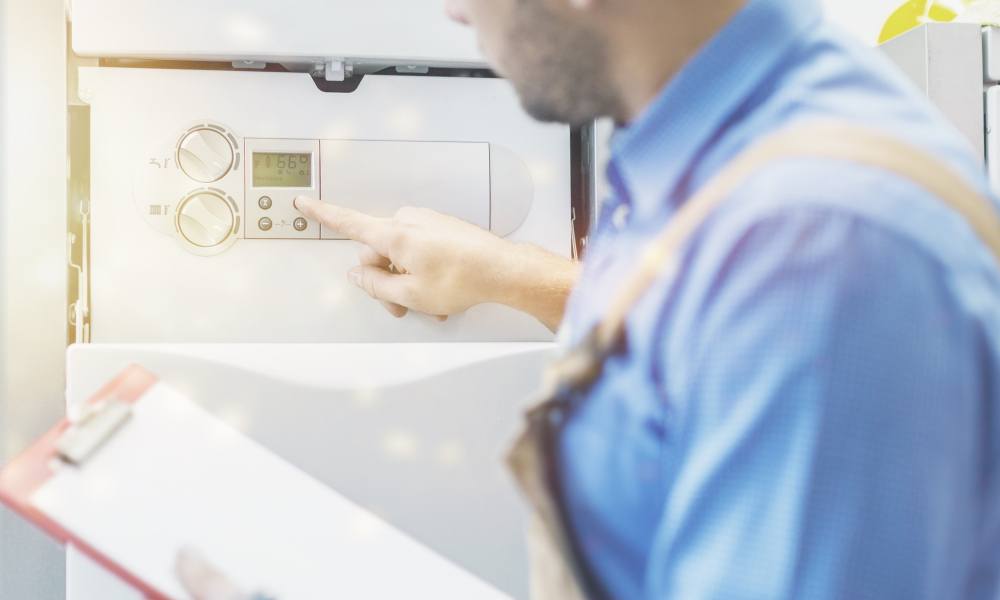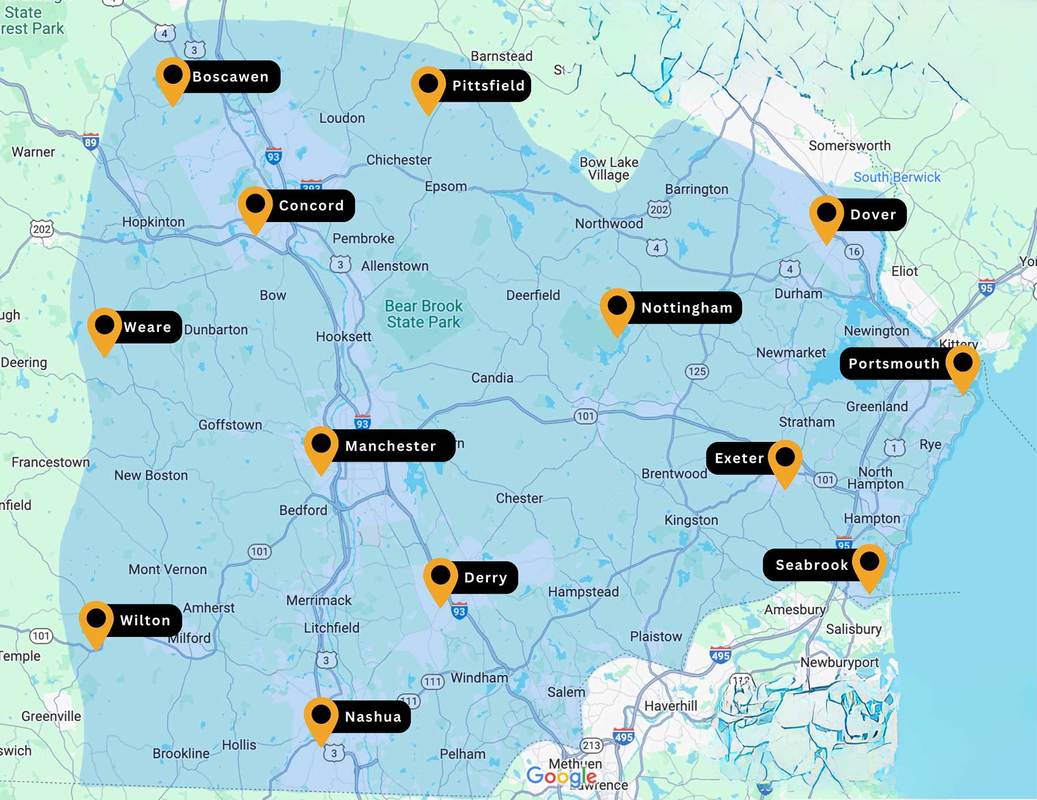
Like Model-T cars and dial-up Internet, water heater tanks are rapidly becoming a thing of the past. Tankless water heater installation means that your home’s hot water needs will be met more efficiently, economically, and quickly. So why not go tankless in New Hampshire? At Paul the Plumber, we say go for it!
Convenient and Energy-Efficient
Tankless water heater installation presents many advantages. After all, tankless models are smaller than conventional water heaters with tanks.
These units usually go on wall mounts, which is a great way to save space. They are also incredibly durable, less likely to leak, and long-lasting. A tankless water heater’s lifespan is double that of conventional heaters. Often 20 years or more!
The Department of Energy has studied tankless water heater installations and describes energy bills as going down after tankless units get installed. They can potentially lower bills up to 50% and reduce your carbon footprint, too.
So if you want to save on energy costs and get a nearly limitless hot water supply, go tankless!
Questions, Questions
At Paul the Plumber, we hear many questions about tankless water heaters. For example, how exactly do they work?
Traditional water heaters store water in a tank, heating it through gas or electric heating. Without a holding tank, tankless units create hot water when you want it, on demand.
Since it uses gas or electric heating elements, tankless water heaters can instantly heat your water where you want it, when you want it. These units heat water only when necessary, which saves energy and money.
Tankless heaters start doing their job the moment you turn on your hot-water faucet.
Here’s what happens next:
- A flow sensor signals the tankless heater’s control panel to start making hot water
- The heat exchanger moves heat to the water that runs through the heater’s tubing
- A mixing valve moderates the super hot water in the exchanger and exiting it
- A temperature sensor adjusts the temperature and flow
We’ve also been asked if there’s a difference between gas and electric heating elements in tankless water heaters. While they both work in the same fashion, gas tankless heaters tend to last somewhat longer than electric, but both have a longer lifespan than with-tank water heaters.
Is Tankless Water Heater Installation Worth It?
You might be thinking that sure, tankless water heaters sound great, but your old one is still working, and installing a new system just isn’t your priority. We understand, but there are many reasons why going tankless is hardly thankless.
Benefits, Benefits
The way water heats in most homes in the U.S. is super wasteful. We fill our large storage tanks. That causes energy drainage around the clock, all to make sure we have enough hot water for a long bath or a quick shower. And that doesn’t always work. Sometimes there’s one long waiting period before your emptied tank can reheat.
Tanks Cause Problems
You’ve been there. It’s 3 a.m., you get up for a glass of water and find out there’s plenty of water on the floor. Hot water tanks can spring a leak in under 12 years.
Even if they don’t, you may find your energy bill worrying. Maybe your tank has built-up, energy stealing sediment. Maybe energy costs are just going to keep getting higher and higher.
Some Like It Warm
Tankless water heaters can eliminate many common worries, saving on fuel costs and eliminating the potential for catastrophic failure and leaks.
Tankless water heater installation will keep things toasty when it comes to your water supply, with ever-improving features like built-in pumps that recirculate your hot water or maintenance updates easily monitored through your Smartphone.
Installing a Tankless Water Heater
Experts do not recommend installation for do-it-yourselfers. Paul the Plumber is happy to be the pro for the job. We can install tankless water heaters and upgrade wiring or circuit breaker panels for electrically operated units or create leak-free vent, water, and gas connections for gas units.
Maintaining Your Tankless Water Heater
Once you’ve made the smart investment for tankless water heater installation, you’ll want to maintain your water heater, too. Maintenance includes:
- Cleaning and/or changing water filters
- Cleaning and/or changing air filters
- Vinegar flush after 500 use hours to prevent mineral build-up from hard water
- It’s easy, fast, and efficient to install, operate, and maintain your tankless water heater.
Remember, proper maintenance is preventative and saves you money down the line.
Find a Plumber Near Me
So if you decide tankless water heater installation is the way you want to go for all your water heating needs, call Paul the Plumber. We’re ready to make tankless the opposite of thankless in your home.







